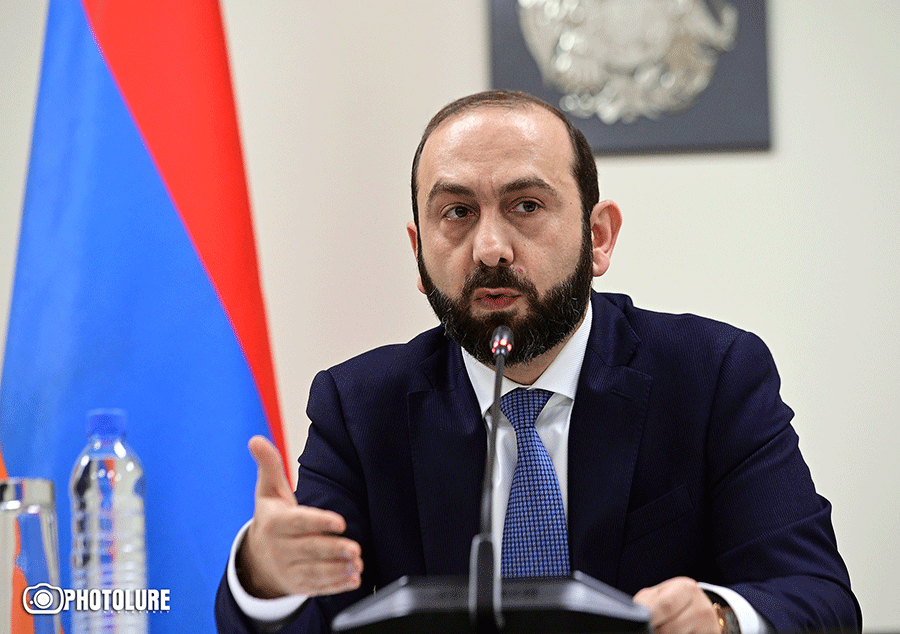Azerbaijan has reversed in recent weeks progress made in peace talks with Armenia, Foreign Minister Ararat Mirzoyan insisted on Tuesday.
“Unfortunately, after this positive step of December 8 [prisoner exchange] we saw that Azerbaijan is not continuing with its constructive stance, to say the least,” he told a news conference. “That manifested itself through both the 7th Azerbaijani proposals on the [Armenian-Azerbaijani peace] treaty and the Azerbaijani president’s latest interview. There was a significant regression and even a blow to the peace process on a number of key issues.”
Mirzoyan complained on January 10 about “some regression” in the latest Azerbaijani proposals on the peace treaty submitted to Yerevan. He said Baku is reluctant to explicitly recognize Armenia’s borders through that accord.
In televised remarks aired hours later, Azerbaijani President Ilham Aliyev renewed his demands for Armenia to open an extraterritorial corridor to Azerbaijan’s Nakhichevan exclave. He also demanded Armenian withdrawal from “eight Azerbaijani villages” and again dismissed Yerevan’s insistence on using the most recent Soviet maps to delimit the Armenian-Azerbaijani border.
Read also
Prime Minister Nikol Pashinian rejected Aliyev’s demands, saying that they amount to territorial claims. Mirzoyan likewise said on Tuesday that Azerbaijan wants to redraw its long border with Armenia.
“I want to stress that nobody has the authority to draw a new border,” he said. “We remain determined in our position that during the delimitation process our relevant commissions should reproduce borders drawn on legal grounds prior to the break-up of the Soviet Union.”
Mirzoyan made clear that Pashinian’s government remains committed to its “peace agenda” despite what it sees as a risk of an Azerbaijani invasion of Armenia.
The European Union’s foreign policy chief, Josep Borrell, expressed on Monday serious concern about “the latest territorial claims by President Aliyev.”
“Any violation of Armenia’s territorial integrity would be unacceptable and will have severe consequences for our relations with Azerbaijan,” Borrell said after chairing a meeting of the foreign ministers of EU member states.
The Azerbaijani Foreign Ministry was quick to reject the criticism. A ministry spokesman accused Borrell of “distorting” Aliyev’s statements and inciting “bellicose and aggressive policy against Azerbaijan.”




















































